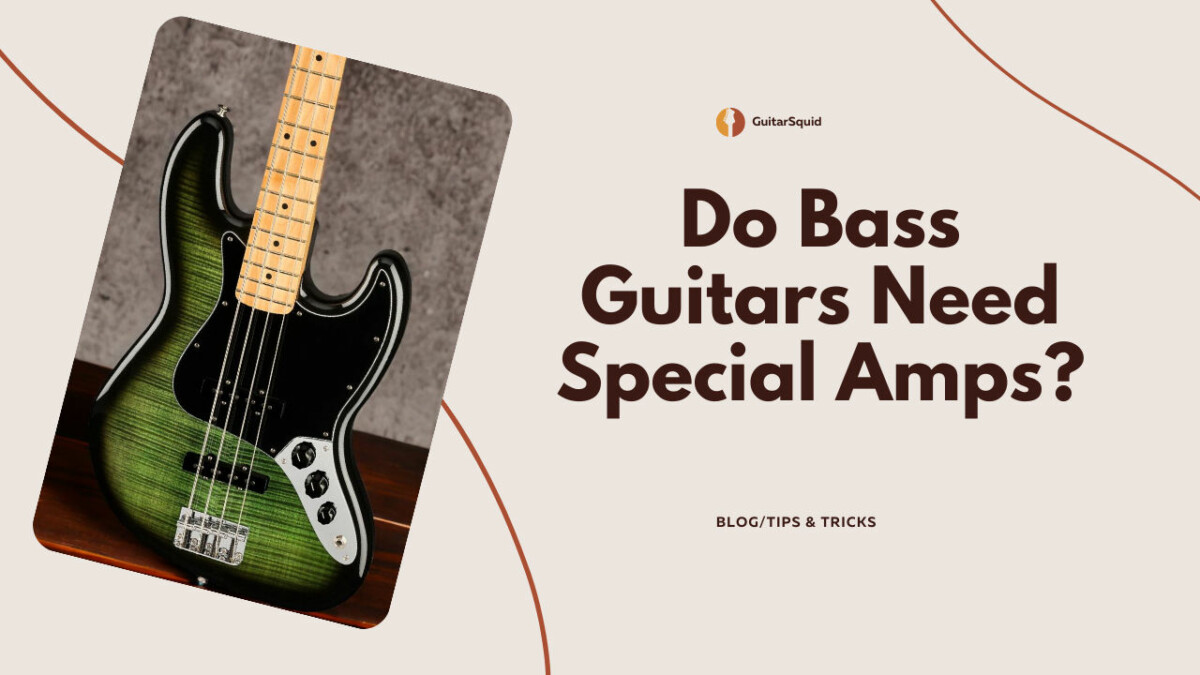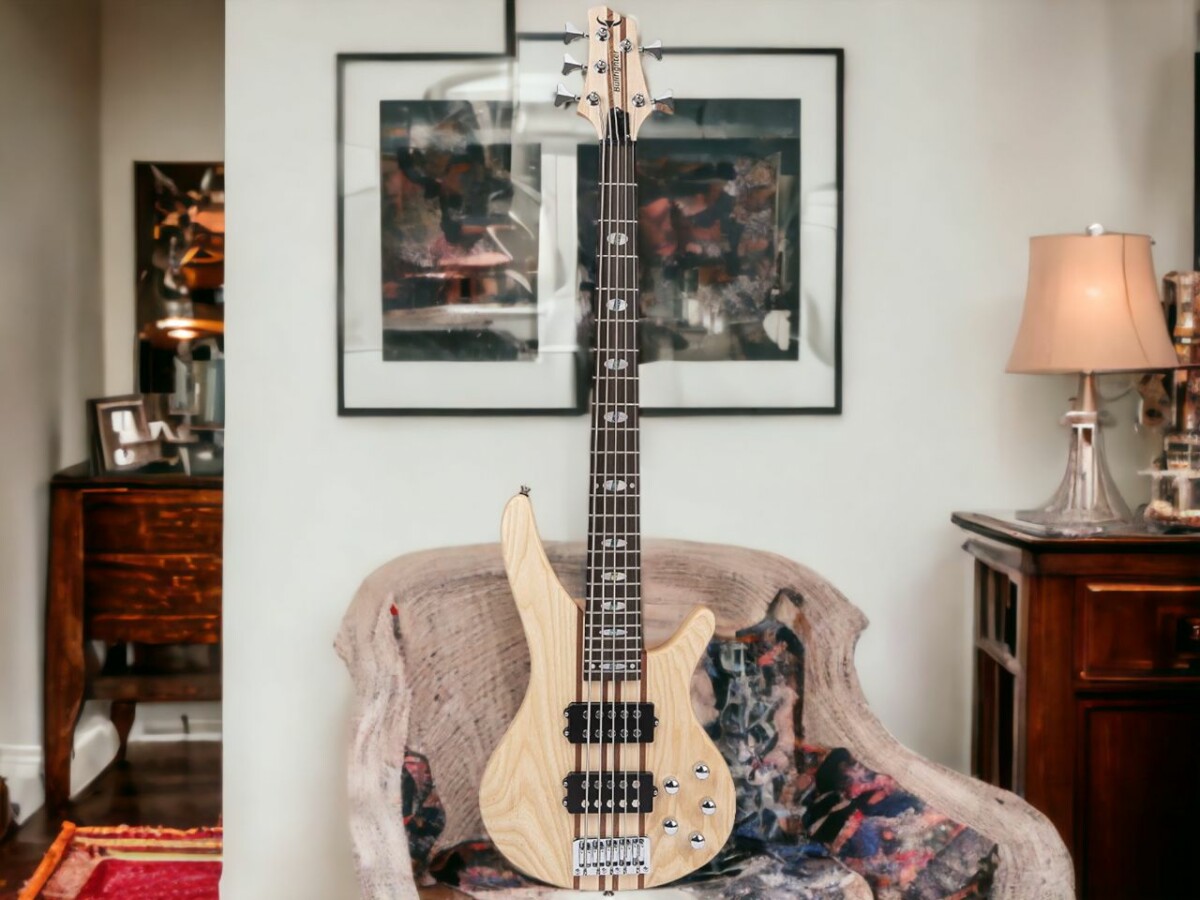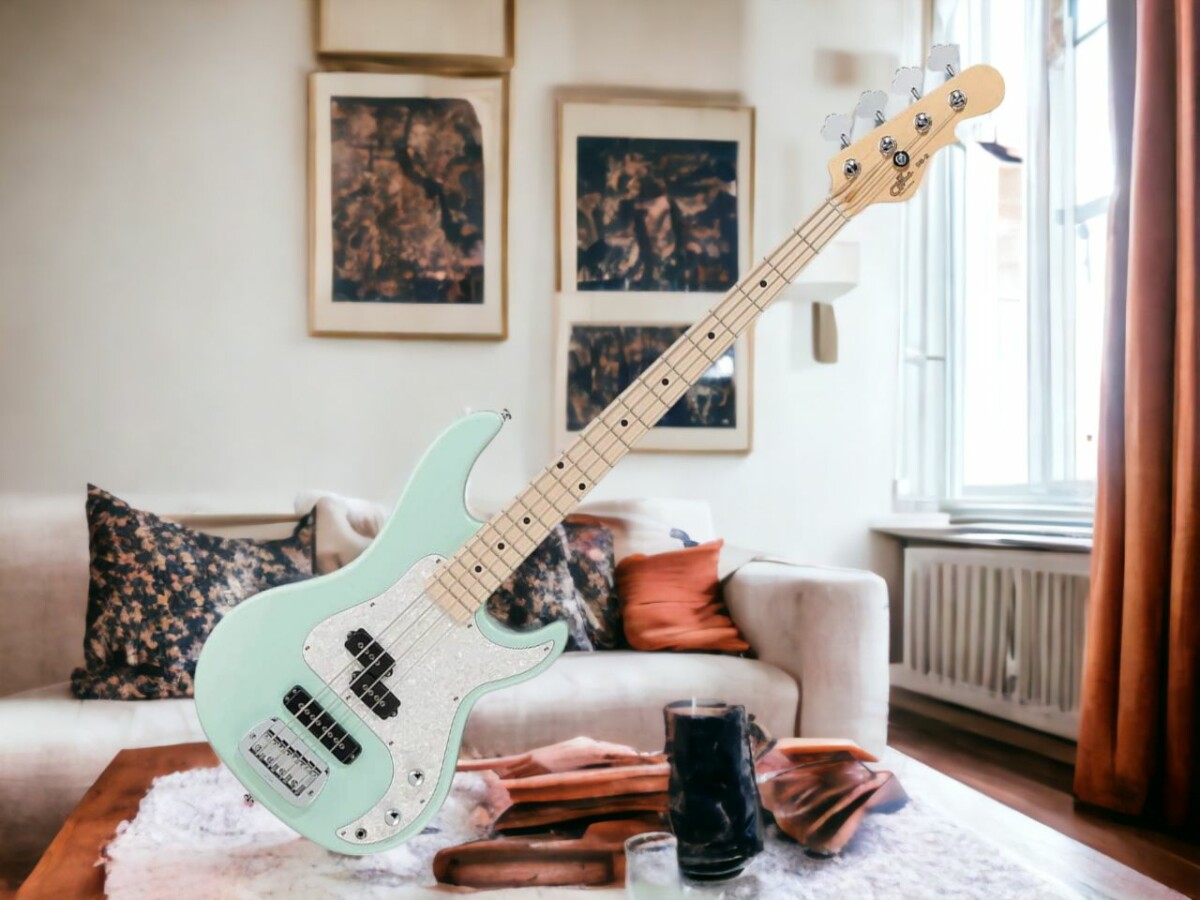Baffled about whether your bass guitar needs a special amp? No worries, it’s a common quandary. Many bass players find themselves scratching their heads over this. Cranking up the volume or going ham on the bass with a regular guitar amp could lead to some serious speaker damage.
So what’s the fix here? A bass-specific amp, of course. Whether you’re jamming in your bedroom or killing it on stage, this guide is here to help you dive deep into the world of bass amps. Not only will it save your guitar amp from potential harm, but it’ll also take your sound to a whole new level.
The Dilemma: Guitar Amps Vs Bass Amps
Bass guitars generally need their own unique bass amps. These amps are built to handle the deep, low frequencies that bass guitars lay down. If you tried using a standard guitar amp instead, you might find yourself dealing with below-par sound quality, and worse, you could even end up damaging your amp. Play safe and stick to a dedicated bass amp for your bass guitar!
Keep in mind that the deep, low vibes of a bass guitar can cause some serious damage to your guitar amp’s speakers, especially if you’re a fan of cranking up the volume.
But hey, it’s not just about safeguarding your gear. You also need to consider the sound quality. Your guitar amp, as cool as it is, just won’t be able to deliver the same rich, full-bodied tones that a bass guitar can produce.
Now, let’s say you’re into recording. This is when a DI box for your bass guitar can be a total game-changer. It’s like a secret weapon that keeps those important low frequencies intact, while also giving you the bonus of being able to record directly. No fuss, no muss.
Specifications of a Good Bass Amp
Let’s get down to the nitty-gritty of what makes a killer bass amp. Your amp isn’t just an accessory – it’s a core part of your sound and it needs to match your goals and how you plan on using it.
Don’t underestimate the power of a DI box when recording bass guitar. It’s like the secret sauce that ensures your bass tone is on point during recording sessions. And speaking of bass, have you ever considered giving your guitar a personalized touch? Learn more about how you can paint a bass guitar.
Choosing your amp is like picking your best mate:
- Power capacity – How loud can your amp be? It’s all about the volume, baby. ut do you know how loud bass guitars can be? Having an understanding of this can influence your amp choice. A 40-watt amp might do the trick for small gigs, but when you’re playing bigger venues, you’ll need more juice.
- Speaker size – Size matters. Bigger speakers dish out lower frequencies, making your bass sound even better.
- Type – It’s a showdown between powered PA speakers and traditional bass amps. Each brings something different to the table, so think about what you need before you make your choice.
Just remember, a top-notch amp can take your bass’ sound from good to mind-blowing.
Versatility of Keyboard Amps for Bass Guitars
You may be wondering, “Can a keyboard amp really hold its own with a bass guitar?” Surprise, surprise! These amps are actually pretty adaptable and can belt out some decent low-frequency vibes while keeping the sound sharp.
The upside of using a keyboard amp for your bass is they can handle a broad swath of frequencies, they’re flexible with other instruments, and your wallet won’t take a massive hit. On the flip side, they’re not built specifically for bass, so the sound may not be as lush or punchy as you’d hope.
To coax the best bass sound from a keyboard amp, you’ve gotta respect its boundaries. Play around with the EQ settings to give the low frequencies a little extra oomph without wrecking the sound. And here’s a little pro-tip: pair it up with a bass preamp or DI box to really bring out the depth and clarity.
The Right Bass Amp: Needs and Budget
When you’re on the hunt for the perfect bass amp, there are a couple of key components you need to keep in mind: what you specifically need from the amp and how much dough you’re willing to drop on it.
Now, don’t just go for the cheapest one or the one loaded with all the bells and whistles. Here’s the lowdown on what you need to think about:
- Sound Quality: You want an amp that can handle those deep bass notes without making them sound like a tin can.
- Power: If you’re hitting the stage, you’ll need an amp that has enough juice to compete with the drummer’s mad skills.
- Features: If you have plans on laying down some tracks, find an amp that comes with a DI output.
Just remember, while it’s crucial to keep your budget in mind, don’t cut corners when it comes to quality.
And if you’re curious about the different types of bass guitars out there, find out what a P-bass guitar is and see if it aligns with your musical preferences.
And don’t underestimate the power of a good DI box when you’re recording.
Exploring Brands and Options for Bass Amps
As you’re diving into the wide world of bass amps, you’ll bump into a heap of brands and models, each one totally unique and packed with its own cool features and specs. You might wanna take a peek at amp modeling options for bass guitars. These bad boys offer a ton of versatility and a crazy amount of different sound options. But, heads up, they mightn’t offer that rich, warm vibe you get from traditional amps.
When it comes to sound quality, the Fender Rumble series and Ampeg bass amps both have some serious cred. Fender Rumble amps are super light, making them easy to lug around, and they pump out a solid, robust tone that can rock pretty much any genre. On the flip side, Ampeg amps are known for delivering a punchy, powerful sound that really shines in rock and funk scenes.
At the end of the day, it’s all about finding an amp that vibes with your own unique style and musical tastes. So, don’t be shy – get out there and test drive a few different brands. You never know, your perfect match could be just around the corner!




